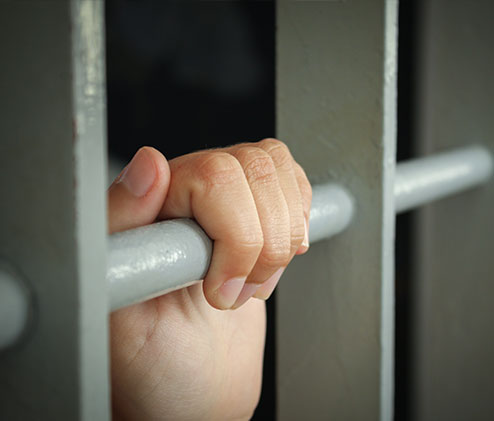

Blog

Prisoner Healthcare: Women’s healthcare in prisons a particular challenge
Sunday September 12, 2021
Treating patients in custodial settings presents a unique set of challenges for primary care providers. Not only do prisoners frequently arrive in prison with a number of health problems, but they may also face higher exposure to some conditions as a result of their incarcerations such as communicable diseases, mental health issues, alcohol abuse and violence.
Adjunct Associate Professor at the University of Western Australia Dr Marisa Gilles has researched prisoner health since 2008, particularly looking at the health of women and mothers in prison.
“It is an area of interest for me, particularly with respect to the high proportion of inmates with alcohol and drug issues, the high prevalence of mental health issues, and the history of violence in the lives of women in prison,” Dr Gilles said.
Dr Gilles’ research in 2019 showed that 30 per cent of incarcerated Aboriginal women had been pregnant while in prison, and 20 per cent had given birth while detained.1
“Quality perinatal care is critical for good pregnancy outcomes without which these babies can suffer from low birth weights, and undiagnosed complications of pregnancy such as STIs, diabetes and rheumatic heart disease,” Dr Gilles said.
Her research showed that one in five Aboriginal mothers in custody had themselves been separated from their families as children by government services. They are typically also young, with 42 per cent being aged under 30.2
Dr Gilles said the importance of accessible and culturally acceptable perinatal care was well recognised.
“This is particularly critical in such a complex and challenging environment where the women are separated from other family members.”
Periods of custody can also serve as a vital time for providing healthcare to women who may not have been engaged with a GP when living in the community, or who haven’t had a positive experience with health services before.
Given the complexity of healthcare for people in custody, the role of the GP takes on a high level of importance. Data from the National Prisoner Health Data Collection (NPHDC) shows that 30 per cent of Australian prisoners had a chronic disease diagnosis, and 31 per cent were positive for hepatitis C.
Moreover, 65 per cent of prisoners had used illicit drugs in the preceding 12 months, 43 per cent had used methamphetamines, and 75 per cent were current tobacco users. For Aboriginal mothers, the latter figure rises to 92 per cent.
Prisons provide a valuable opportunity to intervene and obtain good outcomes for individuals who have been previously disconnected from mainstream health services. The prison environment is stable and in such a setting, healthcare providers can offer interventions such as hepatitis C treatment, methadone programs, smoking cessation and comprehensive chronic disease management.
With the right approach and resourcing, prisons can become a positive experience of high-quality healthcare, culturally secure programs and create the opportunity to shift the dial from a deficiency to a redemption model.
For doctors wanting to make a difference, prison health provides the perfect opportunity.
Dr Marisa Gilles
Adjunct Associate Professor at the University of Western Australia
1,2 Elizabeth A. Sullivan, Sacha Kendall, Sungwon Chang, Eileen Baldry, Reem Zeki, Marisa Gilles, Mandy Wilson, Tony Butler, Michael Levy, Sarah Wayland, Patricia Cullen, Jocelyn Jones, Juanita Sherwood (2019) ‘Aboriginal mothers in prison in Australia: a study of social, emotional and physical wellbeing’, Australia New Zealand Journal of Public Health, 43:241.


